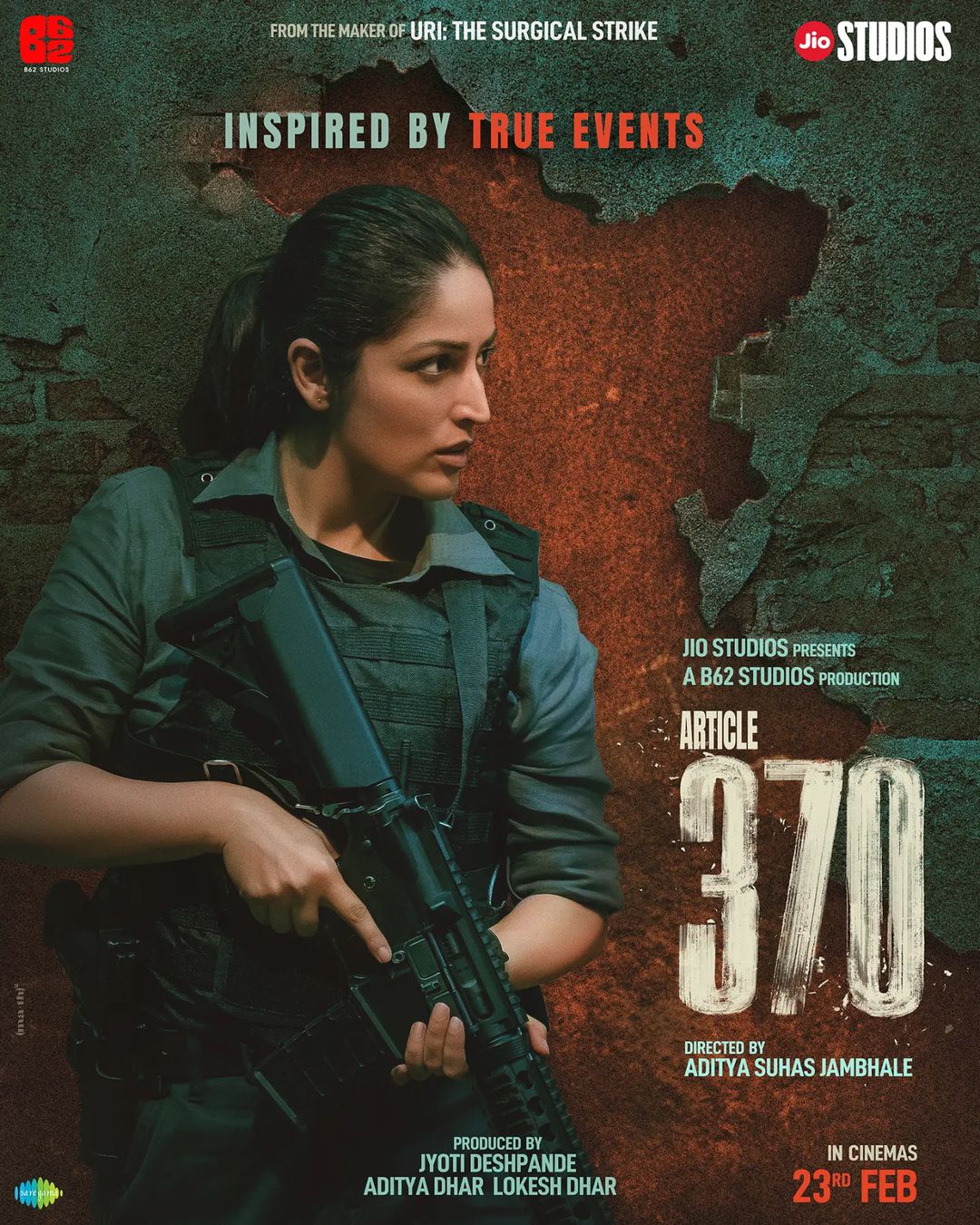
Article 370: Navigating the Unrest in Kashmir’s Landscape
In the wake of Bollywood’s newfound zeal for wartime narratives, ushered in by the critical and commercial triumph ‘Uri: The Surgical Strike,’ director Aditya Dhar refrains from the director’s chair yet influences the cinematic expedition that is ‘Article 370.’ While not as razor-sharp or polished as its predecessor, ‘Article 370’ makes its presence felt against the backdrop of Kashmir’s tumultuous politics and its ‘conflict economy.’
From the opening moments, a compelling prologue delivered by Ajay Devgn succinctly sets the political stage. Within this charged atmosphere, the story unfurls the tale of ID field officer Zooni Haksar, portrayed with steely resolve by Yami Gautam Dhar. Her character is pivotal to the narrative, beginning with her significant encounter with Burhan Wani — a sequence that spirals the Kashmir Valley into an uproar of civil discontent and chaos.
Exiled from the Intelligence Department and tasked with the mundane duty of ministerial wedding security in Delhi, Zooni’s fate takes a dramatic turn with Rajeshwari Swaminathan of the PMO, convincingly played by Priya Mani. Urged to lead the NIA and target the revocation of Section 370, Zooni seizes the opportunity to restore peace to the valley she deems ‘a lost case,’ bringing viewers face-to-face with the Pulwama Attack and the complex interests of separatist and official agendas alike.
The authentic Kashmiri locales serve as a testament to the film’s commitment to realism, with Siddharth Vasani’s cinematography ensnaring the valley’s quintessence. Dominated by subdued hues of blue and grey, the film visually accentuates the narrative’s gravity for its extensive runtime of 160 minutes — largely maintaining its grip on the audience until the intermission arrives. It is the film’s latter half where pacing stumbles, burdened by an unnecessary stretch in the storyline.
The soundscape of ‘Article 370,’ however, does not mirror the elevating influence ‘Uri: The Surgical Strike’s score had on its scenes. The erratic musical cues dilute moments that should brim with poignancy and tension, especially noticeable during the portrayal of the tragic Pulwama Attack, whose seriousness is offset by an incongruously upbeat background score.
Yami Gautam Dhar brings a laudable gravity and restraint to Zooni, refraining from excessive theatrics even as she navigates her character’s profound emotional strife regarding Kashmir. Her monologue elucidating the intricacies of the conflict economy is particularly noteworthy, thanks to its eloquent writing and her expressive performance.
Priya Mani rounds out the duo of leading ladies, embodying Rajeshwari with refreshing authenticity. She captivates with an understated but potent portrayal, leaving audiences eager to see more such robust roles from her.
Amidst a cast largely overshadowed by Zooni and Rajeshwari, it is the driving force of women inciting change and making tough decisions that imbues the film with a distinct freshness. Yet, one can’t help but pine for additional scenes that flesh out the dynamic between the characters further.
Though director Aditya Suhas Jambhale may not hit every mark, ‘Article 370’ deserves acknowledgment for its ambition and thematic boldness. Imperfection does not preclude engagement, and for those intrigued by geopolitical dramas interwoven with personal narratives, ‘Article 370’ is a film that warrants viewing.
‘Article 370’ may have lost the tautness that was emblematic of ‘Uri: The Surgical Strike,’ but it encapsulates the essence of a region mired in perennial strife and the individuals caught within — all while craftily navigating the vast narrative terrain of modern-day Kashmir.
FF Ratings: ⭐️⭐️⭐️⭐️
Review by Bhumika Rawat

